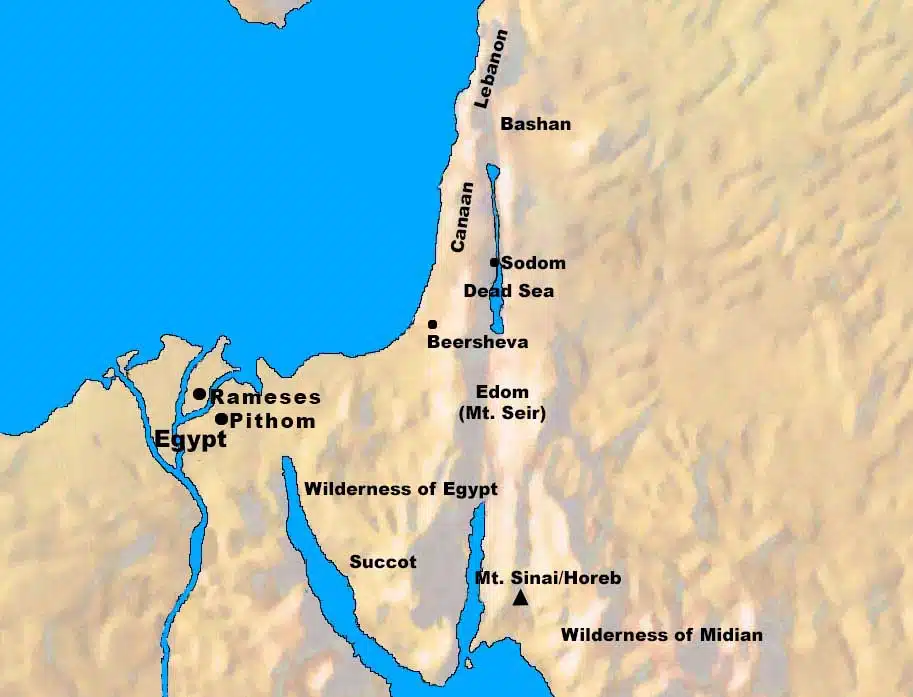God commands that the Urim and the Thummim be placed in the breastpiece over Aaron’s heart.
The breastpiece was important because the names of the sons of Israel in the breastpiece of judgment were to be over the high priest’s heart when he enters the holy place, for a memorial before the Lord continually. The phrase his heart (meaning Aaron’s heart) is mentioned three times in these two verses, making it an important concept. It is perhaps to signify God’s love of Israel, and that Aaron’s service is a reminder of that love.
When the high priest entered the holy place to appear before the LORD, it was important for the twelve stones (representing the twelve tribes) to be clearly visible and prominent when seeking the will of the LORD. Aaron was representing the entire nation before the LORD.
To be carried inthe breastpiece of judgment were the Urim and the Thummim. What are these two objects? Apparently, they were used to determine the will of God. In Numbers 27:21, Eleazar was to “inquire for him by the judgment of the Urim before the LORD.” In Ezra 2:63, the priest could “consult with the Urim and Thummim.” 1 Samuel 28:6 states that Saul “inquired of the LORD”, and the LORD did not answer him by any means, including through the Urim. So, it appears that the Urim and Thummim were objects used to determine the will of the LORD. The exact nature of how that was done and how the objects revealed the LORD’s will is a matter of speculation.
The literal meaning of Urim and Thummim are “Lights” and “Perfections” respectively. A Rabbi from the 12th century called Rashi says of the Urim and Thummim, “This is God’s Ineffable Name which was embedded within the folds of the breastplate. Through this medium, the High Priest enlightens his words and perfects his words. In the Second Temple, there was a breastplate, for the High Priest could not serve if lacking the required garments. God’s Name however, was not embedded within it.”
Another interesting fact is that the word “Urim” begins with the first letter of the Hebrew alphabet, and “Thummim” begins with the last letter of the Hebrew alphabet. The significance of this is also unknown, but it might imply completeness (such as “from A to Z”) in the context of seeking out the LORD’s will. Israel also used the casting of lots to determine the will of God. Saul cast lots to determine guilt (1 Samuel 14:42). The disciples cast lots to determine which of two persons to choose as the twelfth disciple to take the place of Judas (Acts 1:24-26).
The New Testament tells us that the will of God is for us to be sanctified (1 Thessalonians 4:3). To be sanctified means to be set apart in our way of living. That instruction is consistent with all these instructions being given to Israel. God desires that we live in a self-governing manner, to bless and benefit others. That was and is the path to our best interest.
Biblical Text
29 Aaron shall carry the names of the sons of Israel in the breastpiece of judgment over his heart when he enters the holy place, for a memorial before the Lord continually. 30 You shall put in the breastpiece of judgment the Urim and the Thummim, and they shall be over Aaron’s heart when he goes in before the Lord; and Aaron shall carry the judgment of the sons of Israel over his heart before the Lord continually.
Check out our other commentaries:
-
Genesis 1:6-8 meaning
During the second day of creation, God separates the heavens from the earth....... -
Numbers 6:22-27 meaning
Numbers 6:22-27 contain what many have called the “Aaronic Benediction.” It is also called the “priestly prayer.” It expresses the priests’ desire for the LORD...... -
Hebrews 12:18-24 meaning
If we understand who God is, we should live not only basked in His love, but in the fear of His might....... -
Romans 16:21-24 meaning
Paul now sends greetings from those that are with him to the believers in Rome. ...... -
Exodus 2:1-10 meaning
This passage describes the hiding of a Levite baby in the reeds on the Nile River and how Pharaoh’s daughter went to bathe in the......



